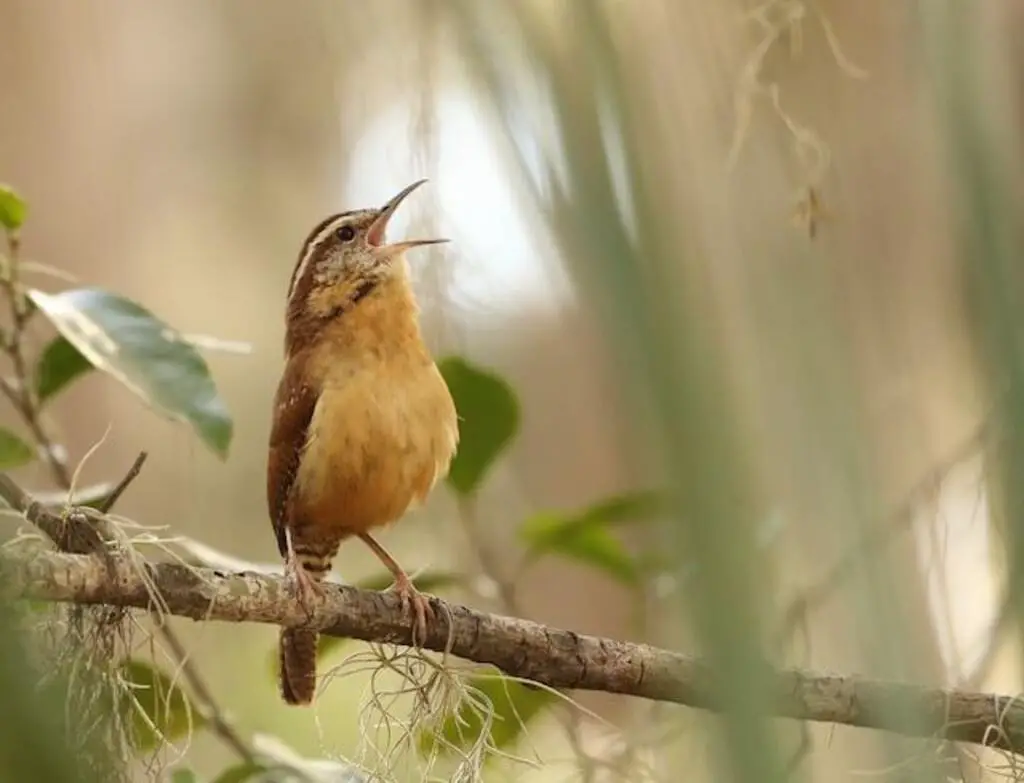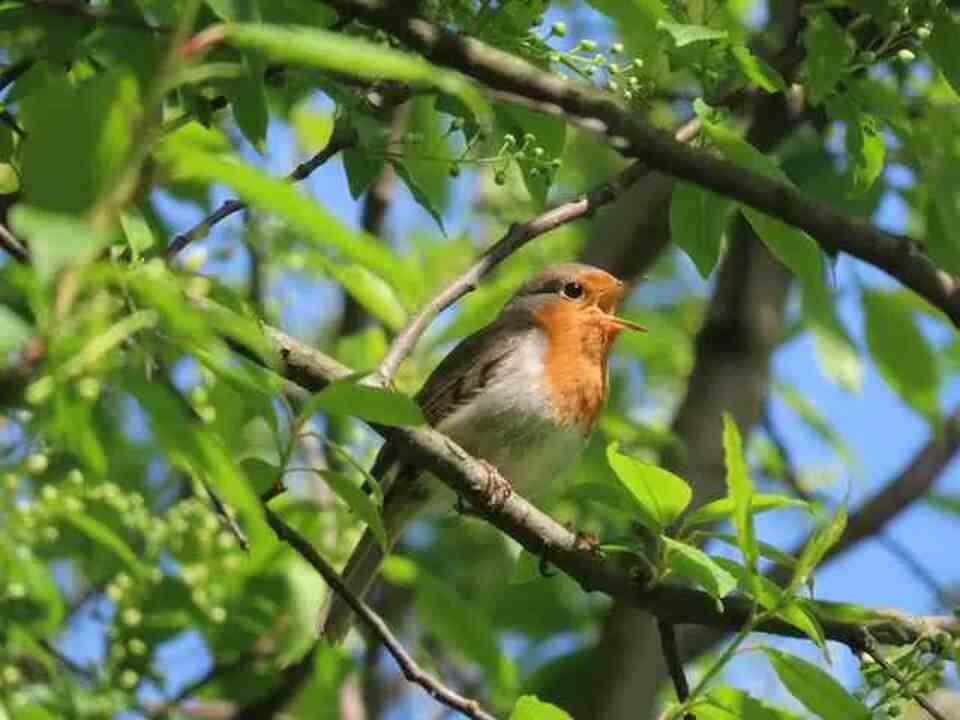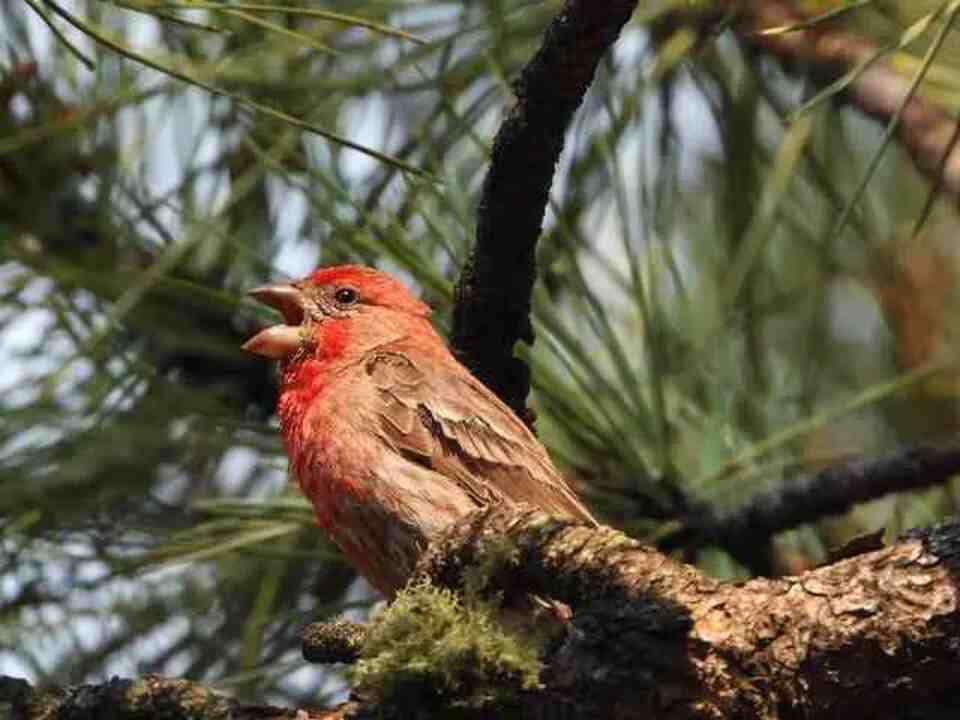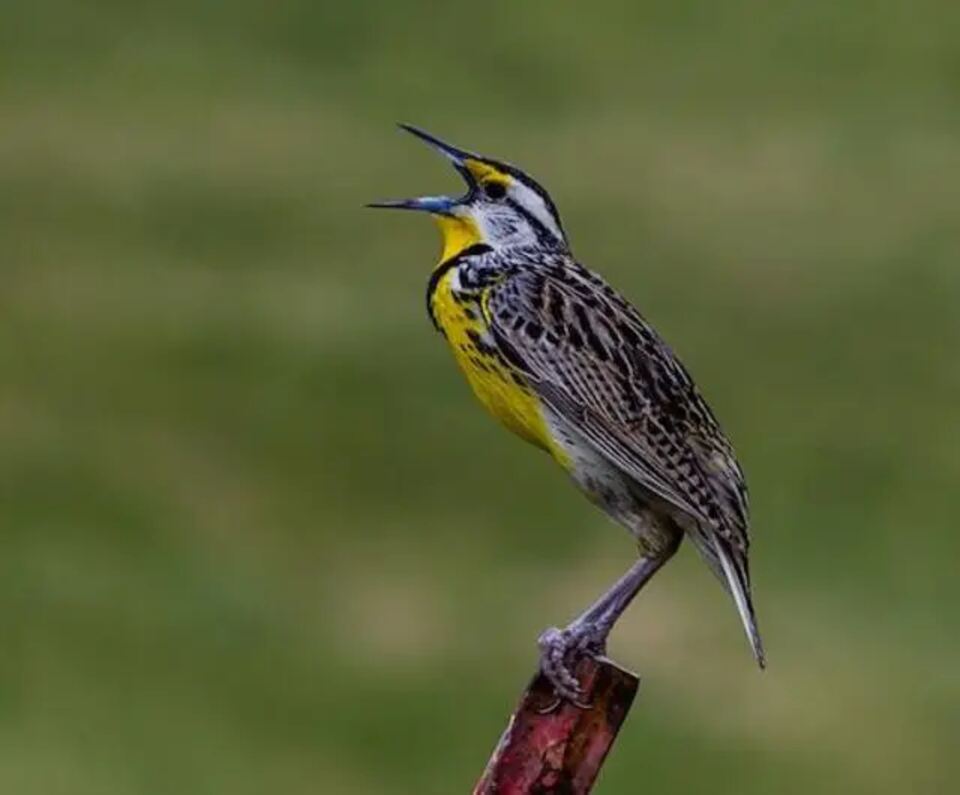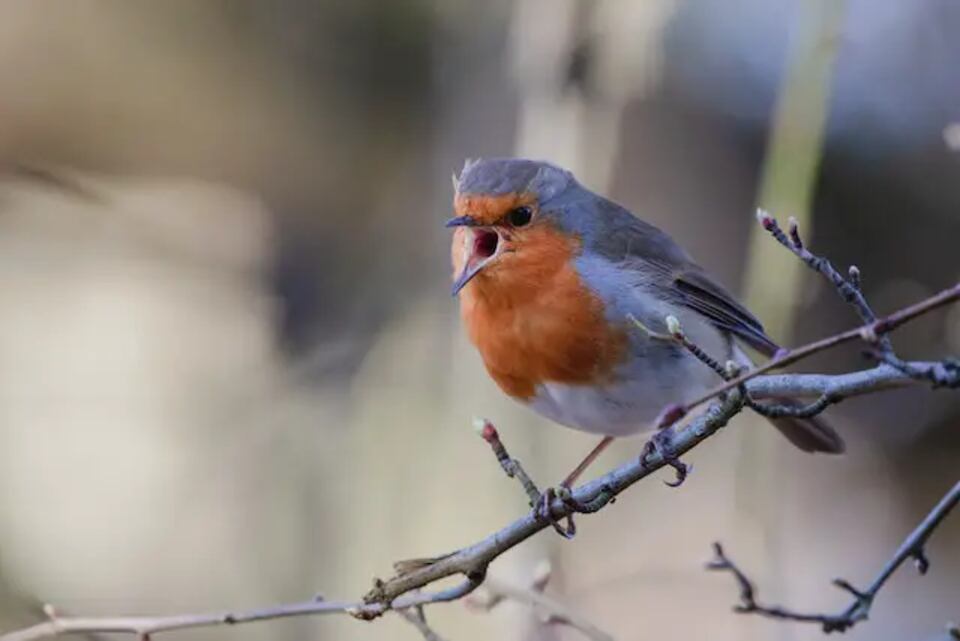Welcome to our journey into the captivating realm of birdsong! Ever wondered why birds chirp in the morning? Join us as we dive deep into this enchanting mystery, uncovering the fascinating reasons behind the dawn chorus and shedding light on the secrets of avian communication.
Table of Contents
- 1 Key Takeaways:
- 2 Why Do Birds Chirp in the Morning?
- 3 Why Do Birds Sing in the Morning?
- 4 When Does Chirping Usually Start in the Morning?
- 5 The Role of the Dawn Chorus
- 6 The Science Behind Morning Bird Chirping
- 7 The Dawn Chorus Phenomenon
- 8 The Dawn Chorus and Bird Migration
- 9 The Effects of Environmental Factors on Bird Vocalization
- 10 The Beauty of the Dawn Chorus
- 11 Appreciating Morning Bird Songs
- 12 Tips for Birdwatching and Enjoying the Dawn Chorus
- 13 Conclusion
- 14 FAQs
- 14.1 What is the purpose of the dawn chorus?
- 14.2 What factors influence morning bird chirping?
- 14.3 What is the science behind morning bird chirping?
- 14.4 Why is the dawn chorus significant?
- 14.5 How does bird migration impact the dawn chorus?
- 14.6 How does bird vocalization in the morning enhance communication?
- 14.7 What is the beauty of the dawn chorus?
- 14.8 How can I appreciate morning bird songs?
- 14.9 What tips can enhance birdwatching and enjoying the dawn chorus?
- 15 Source Links
- 16 Author
Key Takeaways:
- Birds chirp in the morning to establish their territory and attract mates.
- The dawn chorus is a synchronized and harmonious display of bird vocalization.
- Morning hours provide optimal conditions for birds to communicate effectively.
- Environmental factors, such as air density and background noise, influence bird vocalization.
- Understanding morning bird songs allows us to appreciate the beauty and complexity of nature.
The dawn chorus, as it is commonly known, is a phenomenon where birds chirp vigorously in the morning, creating a symphony of sounds.
This behavior is driven by several factors, including territory establishment, mate attraction, and communication with other birds.
By singing in the morning, birds convey important messages about their strength, vitality, and individuality.
Why Do Birds Chirp in the Morning?
Birds chirp in the morning to communicate and establish territory. It’s a way for them to attract mates and defend their territory from other birds. Chirping also helps them establish their presence and warn off potential threats.
Why Do Birds Sing in the Morning?
Birds chirping in the morning is a common and familiar sound that many of us wake up to. But have you ever wondered why birds sing so early in the day? There are several reasons behind this behavior that make the morning the perfect time for birds to express themselves through vocalization.
One of the primary reasons is that the early morning hours provide birds with optimal conditions for communication. The air is cooler and denser, allowing their songs to travel further and be heard by potential mates or competitors. Additionally, there is less background noise in the morning, which means that birds’ songs can stand out and be more easily heard.
Another reason why birds sing in the morning is that it serves as a natural alarm clock. By singing loudly, birds can establish their presence and mark their territory, warning other birds to stay away. This behavior helps them defend their resources, such as food sources and nesting sites, and attract mates.
By vocalizing in the morning, birds can ensure that they start their day off on the right foot and increase their chances of survival and reproduction.
The Beauty of Morning Bird Songs
Furthermore, the morning is a time when bird songs can be heard more clearly and appreciated for their melodic beauty. The peacefulness and serenity of the early hours create the perfect backdrop for the symphony of sounds produced by birds.
Their songs add a touch of natural beauty to our surroundings and provide us with a harmonious soundtrack to the start of a new day.
Overall, birds sing in the morning for several reasons, including optimal communication conditions, territorial defense, and the beauty of their songs.
The morning chorus of bird chirping is a fascinating phenomenon that showcases the intricate behaviors and connections between birds and their environment.
So the next time you hear birds singing in the morning, take a moment to appreciate the wonders of nature and the importance of bird vocalization in our world.
When Does Chirping Usually Start in the Morning?
Birds usually wake up at 4 am, and begin chirping early in the morning, typically 30 minutes before sunrise. This is known as the dawn chorus, and it is a common behavior among many bird species. The time at which the dawn chorus begins can vary depending on several factors, including the time of year, location, and weather conditions.
During the breeding season, which usually occurs in the spring and early summer, birds are more likely to start chirping earlier in the morning. This is because males are trying to attract mates, and singing at dawn is a way to advertise their presence and attract a female partner.
The dawn chorus is also more pronounced in rural areas, where there are fewer human-made noises and more natural habitats for birds. In addition to attracting mates, birds may also start chirping in the morning to mark their territory.
By singing at dawn, they are establishing their presence and warning other birds to stay away. This behavior is especially common among male birds, who are trying to defend their territory and resources.
Overall, the timing of bird chirping in the morning is a complex behavior that is influenced by various factors, including biology, ecology, and environmental conditions.
The different times when chirping usually starts in the morning for some common bird species:
| Bird Species | Chirping Start Time |
|---|---|
| American Robin | 4:00 – 4:30 am |
| House Sparrow | 5:00 – 5:30 am |
| Northern Cardinal | 5:30 – 6:00 am |
| European Robin | 6:00 – 6:30 am |
| Blackbird | 6:00 – 7:00 am |
Note that these times can vary depending on factors such as geographic location, time of year, and weather conditions.
The Role of the Dawn Chorus
The dawn chorus plays a significant role in bird behavior and communication. This captivating phenomenon is characterized by the synchronized and harmonious singing of multiple bird species in the early morning hours. The melodic patterns and diverse vocalizations create a symphony of sound, signaling the start of a new day and the breeding season.
The dawn chorus serves several purposes for birds. It helps establish territories as birds sing to mark their presence and communicate the boundaries of their areas. The chorus also plays a crucial role in attracting mates, as the loud and lively songs showcase the strength and vitality of the singers.
By singing together, birds coordinate their foraging activities, sharing information about the availability of food sources in the area.
Furthermore, the dawn chorus enables birds to communicate important messages to the bird community. Each species has its unique song, which acts as a form of identification and helps establish social hierarchies within the bird community.
By listening to the songs of their fellow birds, individuals can gather information about potential threats, the presence of predators, and the overall status of the ecosystem. The dawn chorus is most active during the spring months when birds are actively mating and nesting.
| Significance of the Dawn Chorus | Avian Melodic Patterns | Bird Behavior in the Early Morning |
|---|---|---|
| The dawn chorus helps establish territories and communicate boundaries | The synchronized singing of multiple bird species creates a symphony of sound | Birds coordinate foraging activities and share information about food sources |
| It attracts mates by showcasing the strength and vitality of the singers | Each species has its unique song, acting as a form of identification | The dawn chorus provides crucial information about potential threats and predators |
| The chorus helps coordinate breeding activities during the spring months | The melodic patterns contribute to the beauty and complexity of the dawn chorus | Birds communicate important messages to the bird community |
The dawn chorus and avian vocalization during sunrise are not only fascinating to observe but also provide valuable insights into the behavior and ecology of birds. By understanding the significance of bird chirping in the morning, researchers can gain a deeper understanding of avian communication and the delicate balance of ecosystems.
The dawn chorus serves as a reminder of the beauty and interconnectedness of nature, showcasing the power of birdsong to evoke emotions and connect us to the natural world.
The Science Behind Morning Bird Chirping
In the early morning hours, when the world is just beginning to wake up, birds fill the air with their melodic songs. But what is the science behind this phenomenon? Why do birds chirp in the morning? The answer lies in bird biology and avian ecology.
Birds have evolved to optimize their vocalizations during the morning hours. Their unique anatomy, including vocal cords, beaks, and throats, allows them to produce amplified and distinct songs. These songs serve multiple purposes, such as identifying individual birds, marking territories, and communicating with mates, competitors, and potential threats.
The significance of birdsong in the morning extends beyond mere communication. It plays a crucial role in avian behavior and ecology. By singing loudly and harmoniously, birds establish their presence, attract mates, and coordinate activities within their bird community.
The morning chorus serves as a symphony of bird vocalizations, showcasing the complexity and beauty of nature.
| Avian Vocalization Patterns | Reasons for Morning Chirping |
|---|---|
| Birds sing loudly and frequently in the morning hours. | Establishing territories |
| Harmonious singing of multiple species | Attracting mates |
| Synchronized vocalizations | Coordinating foraging activities |
| Distinct and amplified songs | Communicating with bird community |
The science behind morning bird chirping provides valuable insights into the interconnectedness of birds with their environment.
By understanding the biological significance of birdsong in the morning, we can appreciate the intricate behaviors and adaptations of these feathered creatures.
It invites us to marvel at the wonders of nature and the diverse melodies that fill our mornings.
The Dawn Chorus Phenomenon
The dawn chorus phenomenon is a captivating event where multiple bird species sing together in the early morning hours. It is a symphony of bird calls and songs that fills the air and creates a magical atmosphere. But why do birds sing early in the morning? This behavior is rooted in bird communication and natural rhythms.
Bird communication in the early hours serves several purposes. First and foremost, it allows birds to establish territories. By singing loudly in the morning, birds are staking their claim and letting other birds know that this area is already occupied. It is a way of saying “this is my territory, stay away.”
Furthermore, morning vocalization of birds is also a means of attracting mates. By singing complex and melodic songs, male birds are showcasing their prowess and fitness to potential females. It is a way of saying “I am strong, healthy, and would make a great partner.”
Additionally, bird behavior in the morning also involves coordinating foraging activities. By vocalizing and communicating with other birds in the early hours, they can share information about food sources and help each other locate prey. It is a form of teamwork and cooperation within the bird community.
Overall, the dawn chorus phenomenon is a fascinating display of bird communication and avian vocalization patterns. It showcases the intricate interconnectedness of nature and highlights the importance of birds in our ecosystem.
| Bird Behavior in the Morning | Avian Vocalization Patterns | Bird Communication at Sunrise |
|---|---|---|
| Establishing territories | Synchronized and harmonious singing | Attracting mates |
| Coordinating foraging activities | Signaling the start of a new day | Sharing information about food sources |
| Communicating with other birds | Establishing breeding season |
The Dawn Chorus and Bird Migration
One fascinating aspect of the dawn chorus is its connection to bird migration. Many migratory bird species actively participate in the chorus as they make their seasonal journeys. Their vocalizations serve as territorial calls, signaling their presence and staking their claim on territories along their migration routes.
This behavior is crucial for establishing their breeding grounds and ensuring their reproductive success.
Morning bird behaviors, including chirping and singing, are an essential part of migratory birds’ natural rhythms. As these birds prepare to embark on their long flights, they engage in vocalizations to communicate with other birds and maintain their social structures.
These territorial calls in the morning help them establish their hierarchy and ensure their survival during migration.
The dawn chorus provides valuable insights into the intricate dynamics of bird communities and their interactions with their environments. By observing and studying morning bird chirping behaviors, scientists can gain a deeper understanding of the patterns and processes involved in bird migration.
This knowledge is crucial for conservation efforts and preserving the habitats that migratory birds rely on.
| Migration Patterns | Territorial Calls | Importance of Vocalizations |
|---|---|---|
| Migratory birds participate in the dawn chorus to establish territories along their migration routes. | Territorial calls in the morning help migratory birds maintain their social structures and hierarchy. | Vocalizations play a crucial role in the survival and reproductive success of migratory birds during their journeys. |
| Migratory bird species use vocalizations to communicate with other birds and stake their claim on breeding grounds. | Morning bird behaviors, including territorial calls, ensure that migratory birds establish their presence and attract mates. | The dawn chorus provides valuable insights into the patterns and processes of bird migration, aiding in conservation efforts. |
The Effects of Environmental Factors on Bird Vocalization
Environmental factors play a significant role in the vocalization of birds, particularly during the early morning hours. These factors have a direct impact on the behavior and communication of birds during the dawn chorus.
Optimal Acoustic Environment
The cooler and less turbulent air in the early morning creates an optimal acoustic environment for birds. The denser air allows their songs to carry further, facilitating effective communication and the establishment of their presence.
Additionally, the lack of competing sounds in the morning enhances the clarity and importance of bird vocalizations. This enables birds to effectively communicate with mates, mark their territories, and coordinate their activities with fellow birds.
Enhanced Communication and Signaling
Environmental factors in the morning also enhance the communication and signaling abilities of birds. The dim light levels provide ideal conditions for vocalizing instead of foraging, allowing birds to focus on establishing their presence and attracting mates.
The quieter background noise during this time allows their songs to stand out, ensuring that their messages are heard by other birds.
“The dawn chorus is a symphony of sound, with birds utilizing their vocalizations to establish territories, attract mates, and communicate important information to their community. It is a captivating display of avian behavior and the power of environmental factors in shaping it.”
| Environmental Factors | Effects on Bird Vocalization |
|---|---|
| Cooler and less turbulent air | Allows songs to carry further and facilitates effective communication |
| Dim light levels | Provides ideal conditions for vocalizing instead of foraging |
| Quieter background noise | Allows bird songs to stand out and ensures effective communication |
Overall, the effects of environmental factors on bird vocalization during the early morning showcase the intricate relationship between birds and their surroundings. The optimal acoustic environment, enhanced communication, and signaling abilities contribute to the biological significance of morning bird chirping.
This phenomenon highlights the importance of the dawn chorus and its role in avian behavior and ecology.
The Beauty of the Dawn Chorus
The dawn chorus is a mesmerizing display of nature’s symphony, where birds sing their melodious songs in the early morning hours. It is a magical experience that showcases the beauty and wonder of bird behavior.
One of the reasons birds sing in the morning is to greet the new day and establish their presence in their territories. Their songs fill the air with a sense of vitality and energy, creating a serene atmosphere.
Another reason behind the morning bird songs is the concept of a natural alarm clock. As the sun rises, birds use their songs to signal the start of the day and coordinate their activities.
Their vocalizations serve as a wake-up call not only for themselves but also for other birds in the area. It’s a way of synchronizing their behavior and ensuring the smooth functioning of their community.
The early morning bird sounds also reveal fascinating insights into the behavior of these avian creatures. Birds are most active during the morning hours, as they engage in activities such as foraging, mating, and defending their territories.
Their songs play a crucial role in attracting mates and asserting their dominance. By singing loudly and melodically, birds not only showcase their vitality but also communicate their intentions to other birds in their vicinity.
| Bird Behavior at Sunrise | Reasons for Morning Bird Songs |
|---|---|
| Establishing territories | Signaling the start of the day |
| Attracting mates | Coordinating activities |
| Communicating with other birds | Synchronizing behavior |
The morning bird chorus is not only a spectacle for our ears but also a reminder of the interconnectedness of nature. As we listen to their songs, we become part of the larger tapestry of life, where birds and humans coexist in harmony.
So, the next time you find yourself awake at dawn, take a moment to appreciate the beauty of the dawn chorus and let their melodic songs serenade your soul.
Appreciating Morning Bird Songs
The melodic tunes of birds singing in the early morning create a serene and enchanting ambiance that connects us to nature. Understanding the scientific reasons behind their chirping in the morning allows us to appreciate the beauty and complexity of bird behavior.
Birds sing in the morning for various reasons, including establishing territories, attracting mates, and communicating with other birds. Their morning vocalizations follow distinct patterns and serve as a natural alarm clock for both the avian community and us.
Bird behavior at dawn is driven by their biological clock, which prompts them to vocalize as part of their natural rhythms. The morning chorus of bird songs signals the start of a new day and the breeding season.
Through their vocalizations, birds communicate their strength, vitality, and availability to potential mates. The symphony of bird songs at sunrise also helps establish territories, coordinate foraging activities, and communicate important information to their fellow birds.
Listening to the morning bird song patterns provides us with a unique opportunity to observe and appreciate the intricacies of avian communication.
As we immerse ourselves in the symphony of bird chirping, we develop a deeper connection to nature and gain a better understanding of the delicate balance of life in which birds play their part.
The morning bird songs serve as a reminder of the intricate web of life and the beauty that surrounds us every day.
Table: Bird Songs in the Morning
| Bird Species | Main Reasons for Morning Chirping |
|---|---|
| Robin | Establishing territories |
| Blackbird | Attracting mates |
| Song Thrush | Communicating with other birds |
| Dove | Announcing their presence |
The morning bird song is a testament to the beauty and wonder of the natural world. By appreciating and understanding the significance of bird vocalization in the morning, we can cultivate a deeper sense of connection with the avian community and the environment as a whole.
So, the next time you hear the enchanting melodies of birds at sunrise, take a moment to appreciate the natural alarm clock they provide and the intricate language they use to communicate.
Tips for Birdwatching and Enjoying the Dawn Chorus
Birdwatching and enjoying the dawn chorus can be a rewarding and enriching experience. To make the most of this captivating display of nature, here are some tips to enhance your birdwatching adventures.
1. Rise and Shine Early
The dawn chorus occurs in the early morning hours, so it’s important to set your alarm and wake up before sunrise. This is when birds are most active and their songs are at their peak. By starting your day early, you’ll have the opportunity to witness the full beauty and diversity of bird vocalizations.
2. Find a Tranquil Outdoor Location
Choose a peaceful and natural outdoor location where you can observe birds undisturbed. Parks, nature reserves, and open fields are great options. Look for areas with varying habitats, such as woodlands, wetlands, and meadows, as different bird species prefer different environments.
3. Be Patient and Observant
Birdwatching requires patience and keen observation. Find a comfortable spot where you can sit or stand quietly. Use binoculars to get a closer look at the birds and pay attention to their behavior and interactions. Listen to their songs and try to identify different species based on their unique vocalizations.
Remember, the dawn chorus is a dynamic and ever-changing symphony, so stay alert and open to new discoveries.
By following these tips, you can fully immerse yourself in the morning bird chorus and gain a deeper appreciation for the science behind birds chirping in the morning.
It’s an opportunity to connect with nature, observe the fascinating behaviors of birds, and enjoy the beauty of their melodic songs.
So grab your binoculars, venture outdoors, and let the enchanting world of birdwatching and the dawn chorus unfold before your eyes and ears.
Conclusion
The morning chorus of bird chirping is a fascinating display of avian behavior. Birds sing in the morning for various reasons, including establishing territories, attracting mates, and communicating with other birds.
This behavior is driven by their biological clock, which is synchronized with the natural rhythms of the environment. By singing in the morning, birds optimize their survival and ensure their presence is known in their ecosystems.
Avian vocalizations during sunrise serve as natural alarm clocks for birds and help them navigate their surroundings. The significance of morning bird calls lies in their ability to communicate with other birds and establish their place in the hierarchical social structure.
These vocalizations are also a form of identification and can be recognized by both their own species and other bird species in the area.
The dawn chorus, characterized by the collective singing of multiple bird species at dawn, is a remarkable phenomenon. It showcases the interconnectedness of nature and the importance of avian communication.
The melodic songs of birds at dawn create a serene and captivating atmosphere, reminding us of the beauty and complexity of the natural world.
In conclusion, the reasons for birds chirping in the morning are multifaceted. From establishing territories to attracting mates and optimizing survival, morning bird calls play a vital role in avian behavior.
By understanding the biological clock of birds and the significance of their vocalizations, we can deepen our appreciation for their melodic songs and the intricate web of life in which they are a part.
FAQs
What is the purpose of the dawn chorus?
The dawn chorus helps birds establish territories, attract mates, coordinate foraging activities, and communicate important information to the bird community.
What factors influence morning bird chirping?
Environmental factors such as cooler and less turbulent air, dim light levels, and reduced background noise play a significant role in bird vocalization in the morning.
What is the science behind morning bird chirping?
The physical characteristics of birds’ vocal cords, beaks, and throats, along with their natural circadian rhythms, contribute to their ability to produce distinct and amplified songs in the morning.
Why is the dawn chorus significant?
The dawn chorus is significant as it marks the start of a new day and the breeding season, helps birds establish territories and attract mates, and facilitates coordination within bird communities.
How does bird migration impact the dawn chorus?
Many migratory bird species participate in the dawn chorus, using their vocalizations to stake their claim on territories during their seasonal migrations.
How does bird vocalization in the morning enhance communication?
The optimal acoustic environment in the early morning allows birds’ songs to travel further and be heard more clearly, enabling effective communication within their environment.
What is the beauty of the dawn chorus?
The melodic patterns and harmonious songs of birds at sunrise create a serene and captivating atmosphere, showcasing the interconnectedness and beauty of nature.
How can I appreciate morning bird songs?
By recognizing the scientific reasons behind birds chirping in the morning, you can deepen your appreciation for the beauty and complexity of bird behavior and enhance your connection to nature.
What tips can enhance birdwatching and enjoying the dawn chorus?
Starting your day early, finding a peaceful outdoor location, and being patient are key aspects of birdwatching. Observing and identifying different bird species and listening to their morning songs provide a unique and fulfilling experience.

